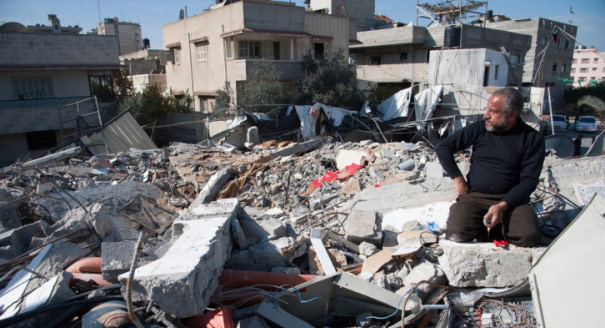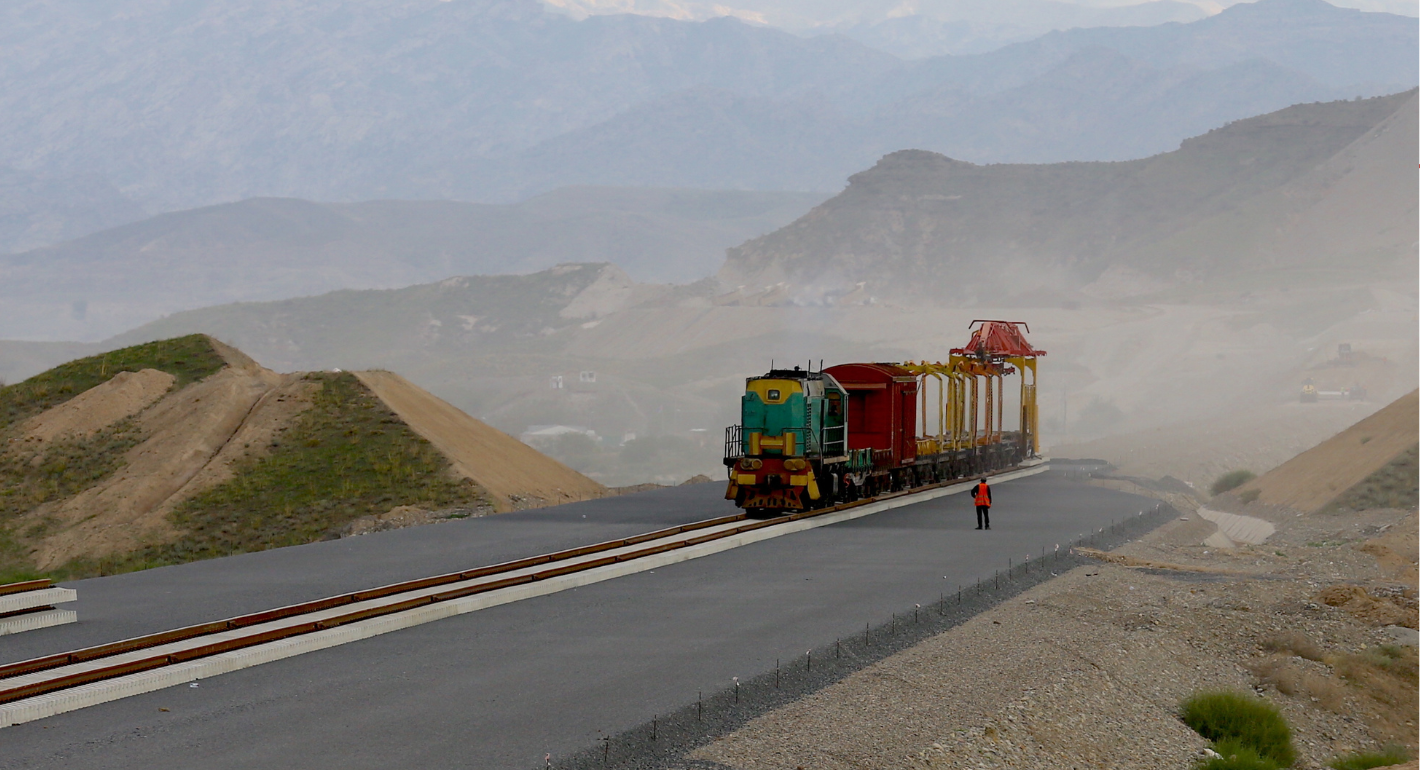Every week, a selection of leading experts answer a new question from Judy Dempsey on the foreign and security policy challenges shaping Europe’s role in the world.
Luke BakerBureau chief for Israel and the Palestinian territories at Reuters
It would be easy to conclude that it is pointless for the West to go on providing billions of dollars to rebuild Gaza if the conflict only leads to the strip being destroyed again. But drawing such a conclusion would be shortsighted.
Yes, there is a great deal of futility attached to the Israeli-Palestinian conflict: Hamas and other militant groups fire rockets into Israel; Israel responds with air strikes or a ground assault; districts are destroyed and hundreds if not thousands are killed; and a donor conference is held to raise funds to rebuild.
But in the midst of that terrible cycle, there are also 1.8 million Palestinians trying to survive and make a life in Gaza. It is only with financial assistance from skilled and dedicated outside partners, including the EU, that their situation can be improved. No one should pointlessly throw money at Gaza. But if the EU can combine its financial clout with political pressure on both Israel and the Palestinians to keep pushing ahead with negotiations, the union can bring influence to bear.
A stable #Palestinian state is a good potential partner for Europe.
The alternative is for Europe to collectively throw up its arms and say “that’s it, there’s nothing we can do,” which would be a terrible admission of defeat. The EU is not doing that with the Southern Mediterranean or its Eastern partners, and it shouldn’t do it with Gaza either, which is ultimately part of the European Neighborhood Policy.
A stable, independent Palestinian state with 4 million well-educated and business-minded Palestinians is a good potential partner for Europe, as is a stable Israel without conflict. The EU, along with the United States and Arab partners, can still play a role in making that a reality.
Nathan BrownNonresident senior associate in Carnegie’s Middle East Program
It is shameful that this question can even be posed.
It is not hard to answer: all one needs to do is dust off past responses and simply change some dates. After a round of fighting ended in 2009, Michele Dunne and I wrote “Gaza’s Sisyphean Existence,” in which we claimed: “If we now step in again to rebuild without an accompanying political strategy, we may find ourselves doing the exact same thing a year or two down the road.”
Of course, that was too severe. It took a full three and a half years until the next round of fighting, leading me not merely to repeat but also to lay blame. In 2012, I wrote that “the real blame on international actors . . . falls not on their actions during this crisis, but on their long inaction before.” And here we are again.
No Nostradamus is needed to predict renewed fighting in #Gaza.
No Nostradamus was needed then to predict renewed fighting, nor is one needed now. All observers know what will happen. To pay now only to go back into diplomatic hibernation will make easy work for pundits: everything that is said can be recycled for many years to come.
It is time instead to ask “Can the EU revive the cause of Middle East peace?”
John ReedJerusalem bureau chief for the Financial Times
Of course Europe should pay to rebuild Gaza, for two reasons.
First, there is the humanitarian imperative imposed by the tens of thousands of people who were made homeless in Israel’s summer offensive against Hamas. There is a need to rebuild lives, houses, and livelihoods and to restore power and water to Gaza’s 1.8 million people.
#Gaza is not a remote place that Europeans can afford to ignore.
Second comes self-interest. Gaza is not a remote place that Europeans can afford to ignore; Gaza is a major Mediterranean port city, some of whose desperate people are piling into unseaworthy boats from Egypt to flee.
A skeptic might ask why Europe should help Palestinians in Gaza and not the millions of people whose lives have been ruined in nearby Syria. The difference is that—for better or for worse—Israel, the gatekeeper in Gaza, will allow aid agencies to do their work there, unlike the regime of Syrian President Bashar al-Assad.
But a question Europeans should ask themselves is: Why are we helping to rebuild Gaza yet again? The Israeli-Palestinian conflict, of which Gaza is an integral piece, is not a back-burner issue—it is escalating before Europe’s eyes. The EU needs to return its focus to this conflict as a matter of urgency and take measures to raise the costs of continued fighting to painful levels for all the parties involved.
Tommy SteinerSenior research fellow at the Institute for Policy and Strategy at the Interdisciplinary Center (IDC) Herzliya
I appreciate European misgivings on reconstructing Gaza—all over again. Sadly, previous rounds of rebuilding alleviated living conditions in Gaza only temporarily. That is because the Hamas government used money and construction materials such as iron and cement to build rockets and an intricate network of tunnels to smuggle arms into Gaza and launch terror attacks on Israel.
Hamas has also used the Gaza Strip as a launchpad to fire 18,000 rockets and mortars toward Israel since the Israeli withdrawal of 2005, compelling Israel to use force to thwart the rocket fire. The limits and regrettable collateral damage of air strikes are all too apparent in the international campaign against the Islamic State.
However, Gaza’s reconstruction serves Europe’s interest of Middle Eastern peace and security if, and only if, the EU insists on three conditions.
With #Hamas in power, there are no assurances that European money will not go to waste.
First, the EU must ascertain that Hamas will not be able to use money and building materials for terrorist purposes. Second, the EU should support all efforts to free Gaza from Hamas. As long as Hamas retains power, there are no assurances that European taxpayers’ money will not go to waste. Third, the EU should also insist on economic and business development, as rebuilding is not all that matters. With a viable economy, Gaza is less likely to turn into a terrorist launchpad—all over again.
Maha YahyaSenior associate at the Carnegie Middle East Center
For the fourth time in less than six years, the international community, Europeans included, is debating the rebuilding of Gaza. A donor conference on October 13 garnered €4.3 billion ($5.4 billion) for the reconstruction of areas damaged by this summer’s military conflict between Israel and Hamas. Funding the rebuilding of lives and livelihoods of Gazans is both a political responsibility and a moral imperative without which 1.8 million Palestinians would perish.
A major detriment to the resumption of socioeconomic development and to peace and security is the seven-year blockade of Gaza. That collective punishment that has left Palestinians with nothing to lose. The push by the EU to rebuild the port of Gaza is therefore critical. The proposal European leaders have put forward is that the international community would support the rebuilding of Gaza as a seaport for goods and passengers with international inspection points in both Gaza and Larnaca, Cyprus. These would alleviate concerns of potential arms smuggling into Gaza. For Gazans, the port would be their window on to the world.
Accepting #Israel's control over imports and exports perpetuates the blockade of #Gaza.
Ending the blockade also means ending Israel’s control of imports and exports into Gaza. Under the current regime of Israeli restrictions on imports, rebuilding would take close to twenty years, during which time Gaza would become unlivable, according to UN estimates. Israel’s military onslaught—which devastated around 11,000 homes and 141 schools and left close to 65,000 individuals without a roof over their heads—means that Gaza may become uninhabitable much sooner. Making Gaza fit for living in requires a larger and faster influx of goods and services that also aim at invigorating the local economy by using local companies and labor.
Europeans should not succumb to the pressure of allowing the reconstruction to be used to isolate Gaza further. Accepting Israel’s control over imports and exports is a perpetuation of the blockade.
Richard YoungsSenior associate in Carnegie’s Democracy and Rule of Law Program
The benighted ordinary citizens of Gaza desperately need and deserve help. But there are three dangers in the current direction of European policies.
First, reconstruction should not be a substitute for pressing Israel to lift the blockade on the territory. Gaza’s isolation has surely augmented support for Hamas’s more radical rivals. Yet on this, little movement is evident.
Second, the EU should be cautious in extending its role into the security sphere. While there is talk of the union helping build policing and border-control capacities, Palestinian security forces need to win greater local legitimacy, not just be more effective at the behest of outside powers.
Reconstruction of #Gaza needs to go hand in hand with consensual Palestinian government.
And third, reconstruction needs to go hand in hand with genuinely consensual Palestinian government—which is not quite the same thing as pushing for Fatah to “retake control of Gaza.” With the Palestinian authority in the West Bank increasingly dysfunctional, it is not clear that Fatah is positioned to provide legitimate and clear governance to Gaza.
If these three caveats are overlooked, physical reconstruction is unlikely to prevent repeat cycles of violence—as has been frequently pointed out after each previous spell of conflict in Gaza in recent years.











